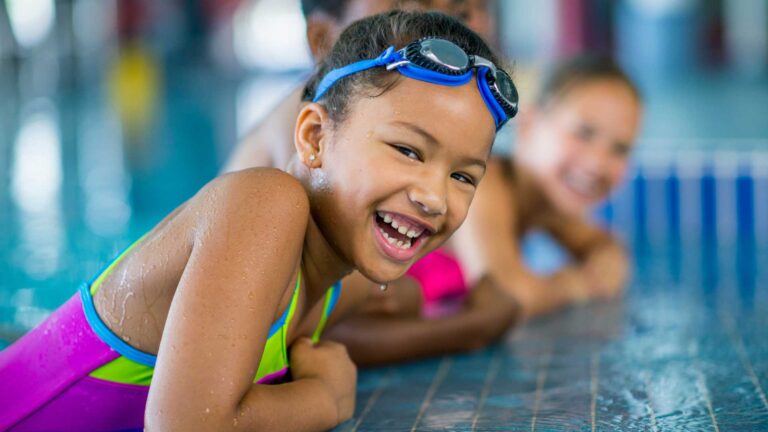What is the best sport for autism?
Combining autism and sports can seem challenging because of the various obstacles faced by individuals with autism spectrum disorder (ASD), such as motor coordination difficulties, sensory sensitivities, social problems, cognitive rigidity, and communication difficulties. Despite these challenges, many children with autism can experience significant benefits from participating in adapted sports or programs specifically designed to meet their unique needs.
If your child or loved one on the spectrum shows an interest in sports, it’s natural to ask: what is the best sport for autism? At ABA Centers of Florida, we’re here to provide guidance. We present a guide to the top 10 best sports practices for children with autism. Not only do these sports address the challenges associated with autism, but they also encourage the development of essential skills and provide fun times.
At our ABA center, we promote play therapy and physical exercise for children and teenagers with autism. We firmly believe that neurodiversity should not be an obstacle to exploring new activities that can be rewarding and fun. Our ABA therapy offers numerous opportunities to learn through play, fun, and physical activity.
For more information about our autism therapy in Doral, Miramar, Jensen Beach, Boca Raton, Orlando, and other Florida cities, feel free to contact us. We are here to help neurodiverse families find solutions to lead fulfilling and active lives!
Exploring the Benefits of Sports for Children with Autism
The practice of sports and physical activity is not only beneficial for physical health but can also have a positive impact on people on the autism spectrum. The combination of autism and sports can provide several advantages that address specific areas where individuals with this disorder may face difficulties, allowing for the strengthening of skills through participation in playful, fun, and disciplined activities. Beyond the inherent physical benefits, sports adapted to autism offer a range of advantages, among which the following stand out:
- Improved Self-esteem: Playing sports gives children with autism the opportunity to set goals and achieve accomplishments in their discipline, thus fostering a greater sense of pride and self-confidence. This process of personal growth can be especially significant for those who struggle with low self-esteem and lack of confidence.
- Promotion of Social Interaction: Sports provide an environment conducive to social interaction, encouraging the formation of new friendships and the development of social skills. In addition, sports can promote teamwork, cooperation, effective communication, and collaboration to achieve shared goals.
- Strengthening Discipline: The combination of autism and sports can be ideal for cultivating essential skills such as time management, responsibility, and perseverance, which in turn reinforces discipline in participants.
- Improved Sleep Quality: Sports adapted to autism can be an effective strategy to reduce anxiety levels and enhance the quality of sleep. Physical activity contributes to regulating the circadian rhythm, promotes muscle relaxation, and modulates the hormones involved in the sleep-wake cycle, leading to a more restful sleep.
- Decrease Challenging Behaviors: Results revealed by the Saudi Journal of Sports Medicine showed that interventions based on physical activity can reduce challenging behaviors, such as self-stimulation, aggressiveness, and lack of concentration, in children and adolescents with autism.
- Improved Motor Skills: Sports adapted to autism are a valuable tool to improve skills such as balance, motor development, coordination, and proprioception. These benefits are not only reflected in sports performance but also have a positive impact on overall quality of life.
What Are the Challenges of Autism and Sports?
Although each individual on the spectrum faces unique challenges, some of the major obstacles associated with autism and sports include:
- Communication: sports such as soccer and basketball require interactions between players and coaches before, during, and after each game. Some children with autism may have difficulty participating in these critical conversations, adapting to team dynamics, and understanding their teammates’ cues.
- Coordination: Some sports, such as field hockey, baseball, and volleyball, require precise hand-eye coordination, which can be challenging for those with ASD who have difficulties with gross motor skills.
- Sensory Sensitivities: Many people on the spectrum experience sensitivities to bright lights, loud sounds, or temperature changes. Sensory concerns in sports environments, typical of field hockey and football, can provoke meltdowns and contribute to challenging behaviors.
- Physical Structure: Low muscle tone can be typical in children and adolescents with autism, which can make participation in contact sports such as football or rugby complicated.
- Stress and Anxiety: Intense sporting environments, including tryouts and travel to games, competitions, or tournaments, can increase anxiety in individuals with autism and affect their performance, hindering progress and skill.
While these are some of the most common challenges individuals with autism can find in the context of sports, each person is unique and may not experience all of these difficulties. Parents must understand their child’s specific obstacles, as many with ASD can be successful in the practices above.
The Best Sports for Children with Autism
Considering the most common difficulties for individuals with ASD, we have compiled a list of sports that offer a more individualized and tailored experience for children with autism:
- Bowling: bowling can be a desirable activity for many children with autism, as repetition is an inherent skill in them. In addition, this practice can take place in special events, clubs, and leagues, which fosters the development of social skills in more autism-friendly environments.
- Athletics: Athletics is a versatile sport that strengthens endurance and promotes an active and healthy lifestyle. From individual events such as personal bests to team components such as relays, track and field offers a variety of autism-friendly options.
- Gymnastics: Gymnastics is excellent for improving balance, flexibility, coordination, and strength. In addition, it provides an individual experience while contributing to team goals. Gymnastics training environments offer structure and help manage sensory issues.
- Martial Arts: Martial arts, such as taekwondo and karate, offer an individual experience but also contribute to a larger team. These practices help develop coordination skills and physical technique while sharing with friends.
- Swimming: Swimming is one of the most complete and low-impact sports, making it ideal for children with autism. It helps improve sensory issues, provides a relaxing sensation, and develops physical strength, endurance, and coordination.
- Cycling: Riding a bicycle provides independence and helps with coordination, balance, and endurance. It also promotes calmness and reduces anxiety and stress in people with autism.
- Horseback Riding: Horseback riding provides controlled sensory stimulation, develops motor skills, builds confidence and self-esteem, improves social and emotional skills, and stimulates cognition. It is a significant therapeutic experience for those on the autism spectrum.
- Yoga: Yoga brings calm, improves flexibility and strength, and increases body awareness. It also promotes attention and concentration, reducing challenging behaviors and encouraging social interaction.
- Tennis: Individuals with autism can practice tennis individually or in pairs, which makes it adaptable to their preferences. In addition, it improves hand-eye coordination, balance, and endurance.
- Golf: Golf offers a calm and controlled environment, promotes concentration and focus, develops motor skills and coordination, and fosters self-control and emotional regulation. It is an inclusive and adaptive sport for children with autism.
Sports Programs for Children with Autism in Florida
Baby Otter Swim School is an adaptive swimming facility for children with autism and special needs that not only teaches swimming but has also successfully competed in the Florida Special Olympics. With locations in Boca Raton, Davenport, Ft Lauderdale, Orlando, and other areas of Florida, it offers extensive coverage in the state.
Freedom Ride, a non-profit organization, is the first PATH (Premier Accredited Therapeutic Horsemanship) center in Central Florida. It specializes in therapeutic riding and related activities for children and adults with disabilities. In addition, it has collaborated with autism Speaks on several occasions.
Gymnastics USA offers a special-needs-specific program that focuses on improving concentration, memory, gross motor skills, coordination, and physical fitness through the practice of sports gymnastics.
Finally, iFly has an “all abilities” program that allows people with cognitive challenges, including autism, to enjoy indoor skydiving. This program provides a safe and exciting experience for all participants.
ABA Therapy, Autism, and Sports
At ABA Centers of Florida, we provide ABA therapy services for children and teenagers on the autism spectrum. We recognize the importance of the connection between autism and sports, as well as the wide-ranging benefits that physical activity can bring. In our therapies, we incorporate play-based practices and physical activity tailored to each child’s individual needs and preferences.
In addition to offering ABA therapy at home, we also offer sessions at our clinical center, where we have playrooms designed especially for children with autism. In these facilities, children can play, exercise, and socialize with peers in a safe and nurturing environment.
Additionally, with our ABA therapy, we help children develop essential skills and healthy coping mechanisms that facilitate their integration into various environments, including sports.
For more information on how we can help, feel free to call us at (772) 773-1975 and speak with our experts. We’ll be happy to assist you and provide you with all the information you need.








